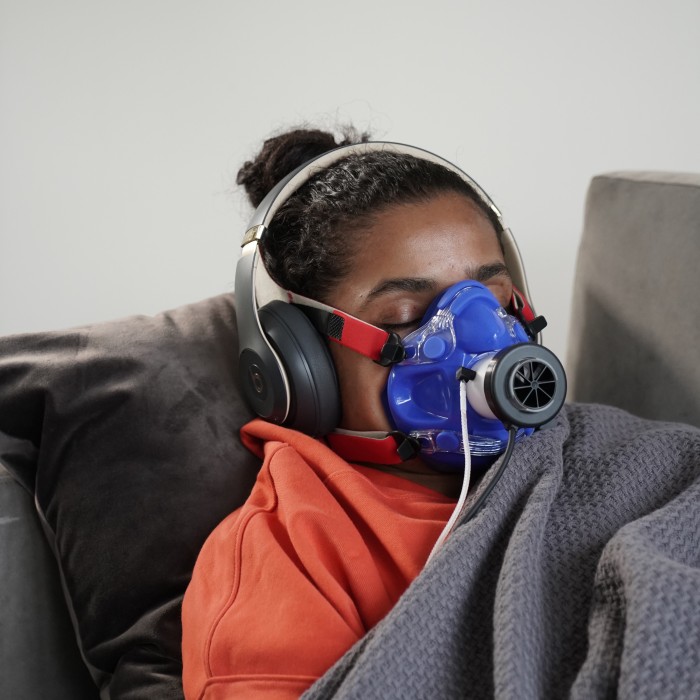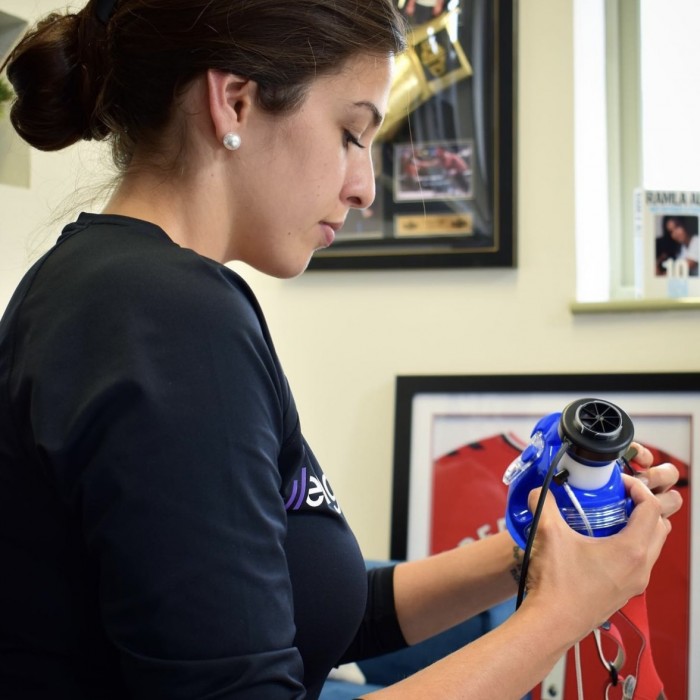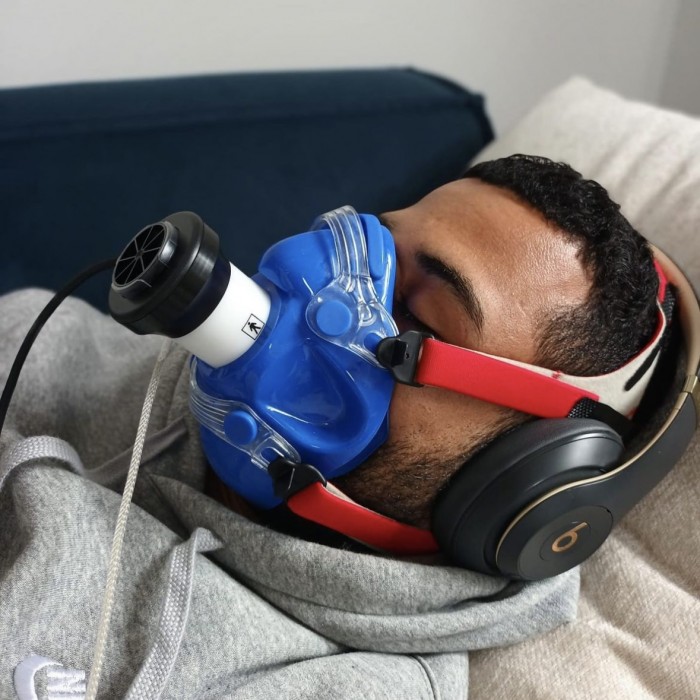What is resting metabolic rate - and why is it so important?
By5 Minute Read

5 Minute Read
‘Metabolism’ is a huge buzzword in the health and fitness industry with lots of misinformation surrounding it - from metabolism boosting foods and supplements, right through to fat burning workouts and so on…
The aim of this short article is to offer a little clarity by sharing our knowledge and insights on Resting Metabolic Rate, which is a core aspect of human metabolism that is relevant to anybody who has health, fitness or performance goals in mind.



Q: So, what is Resting Metabolic Rate (or ‘RMR’ for short)…
A: RMR is the number of calories your body burns at rest each day (just because you aren’t moving doesn’t mean you’re not burning calories).
So what? RMR is often described as ‘the speed of your metabolism’ and for most people it’s the main contributor to daily energy expenditure (the total number of calories your body burns each day).
For most people, RMR accounts for around 60-75% of their total daily energy expenditure.
So, if you have specific goals in mind, then understanding your RMR is going to be important - especially if you want to remove any guesswork and reach your goals faster.
The good news is that your unique RMR can be assessed, and it’s one of the easiest tests you’ll do - just sit back, relax and let our gold-standard tech do the work (no exercise or heavy thinking required… enter Zen!)
Insights…
Across the past few years we’ve tested the resting metabolic rate of over 500 people from all walks of life - ranging from Formula 1 Drivers, Premier League Footballers and Olympic Gold Medalists, right through to weekend warriors, busy parents, executives and entrepreneurs.
Here’s what we discovered…
1. Each person’s resting metabolic rate is (very) different…
When it comes to RMR, no two people are the same and your metabolism can change over time - usually within a couple of months if there are positive changes in diet and/or training.
For example… in just six weeks, after improving their diet and training regime, a client of ours increased their metabolism by 320 calories per day (that’s 2,240 calories over a week).
“So, I can now eat more without gaining weight?”
- Yes.
2. There are HUGE differences between what is measured and what would be predicted…
There are a few ways of measuring your metabolism (RMR). You can predict it using an equation (often done on smart watches) or measure it using gold-standard tech (our approach).
Here’s the thing… prediction equations are purely guessing. They estimate your RMR based on your age, weight, height and sex but can be off by hundreds of calories.
Our approach uses the gold-standard method and, rather interestingly, we’ve found that there is up to a 650 calorie per day difference between what we measure and what would be predicted.
That’s around 4,450 calories you could be under- or over-eating each week!
So, where you can, test don’t guess as you could be way off the mark - and through no fault of your own.
3. Some people have a healthy metabolism (great news!), while others have a slow metabolism (all is not lost, let’s work to improve it)…
There are a number of possible reasons behind this. We’ve found that those who have a slow metabolism tend to have past experience of heavily restricting their food intake (extreme, yo-yo dieting and eliminating food groups without merit).
On the flip side, those with a healthy metabolism tend to have...
4. The type of calories you burn also (really!) matters…
The other cool thing about the RMR test is that it also tells you how much fat you burn at rest.
“Am I a high or low fat burner?”
This is a super common question and our test will give you some answers. But why does this matter…
Without a doubt, burning more fat at rest is a good thing. It can positively impact your daily energy levels, body composition, exercise performance and cardio-metabolic risk.
Again, each person is different and contrary to what you might hear on the grapevine, we’ve found that those who burn more fat at rest are not those who completely eliminate carbs from their diet.
Instead, they are those who periodise their carbohydrate and fat intake relative to their daily energy requirements. In other words, they adopt the ‘different fuels for different days / fuel for the work required' approach that we often advise clients who are on our 1:1 coaching programmes.
If you are a low fat burner a rest then again, it’s not the be all and end all. Eating and training smart can improve this.
For example…
When we first started working with a recent client, we discovered that she burned 10% fat and 90% carbs at rest - leaving big room for improvement.
After dialling in on her nutrition and training, she improved her fat burning capacity at rest significantly; burning 95% fat and 5% carbs just 8 weeks later.
Take home: It’s not just about how many calories you burn at rest, it’s also important to know where these calories come from.
5. Very low calorie diets are damaging….
Finally, we have never seen an adult’s metabolism slower than 1,200 calories per day (ever!). Very few, if any, people would benefit from eating less than 1,200 calories per day.
Eating below your RMR is never a good thing - it can wreak havoc with your energy and hormone levels, as well as your overall physical and mental health.
Of course, you can also overdo it, but this is where insights into your resting metabolic rate can be incredibly useful.
If you would like to enquire or book in for a test, please get in touch with our team.
The Edge HPL is not responsible for any specific health or allergy needs that require supervision nor any adverse reactions you may have to the advice we provide - whether you have followed them as written or have modified them to suit your dietary requirements.
Any nutritional advice and information provided by The Edge HPL is based on our own experiences, research and knowledge. The information provided is not to be used in place of proper medical advice. The Edge HPL and its employees and representatives are not medical professionals, do not hold any type of medical licenses or certifications and do not practice medicine. If customers have any medical questions regarding any advice or information provided by The Edge HPL, they should consult their physician, or another healthcare professional. Please also refer to our Standard Business Terms and Conditions, which can be found on our website.